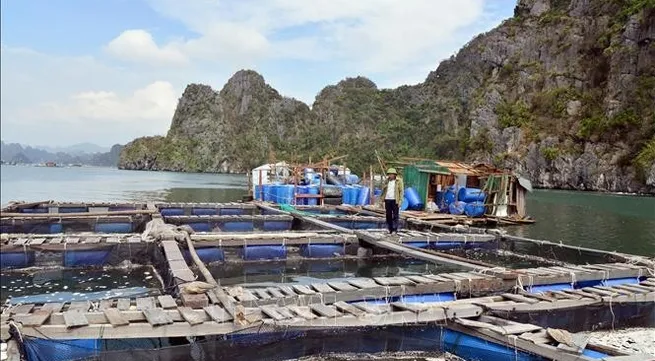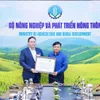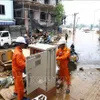Focal tasks, solutions specified to aid post-typhoon recovery, economic growth

Typhoon Yagi, the third to appear in the East Sea/South China Sea this year, is the most powerful there in 30 years and in the Vietnamese mainland in 70 years. Hitting the northern part of the country on September 7, it caused a heavy toll on all the 26 localities across the area, including Thanh Hoa province in the north-central region. Widespread and prolonged downpour accompanying the storm caused severe flooding and landslides in many localities.
As of September 17, 329 people died or went missing while about 1,930 others were injured. Some 234,700 houses, 1,500 schools, and many infrastructure facilities were pulled down or damaged. Meanwhile, 3,722 aquaculture cages were ruined, nearly 3 million livestock and poultry killed, and almost 310,000 trees uprooted, preliminary statistics show.
Property losses are estimated at more than 50 trillion VND (2 billion USD), which is forecast to slow this year’s GDP growth by around 0.15%.
To quickly settle the typhoon’s aftermaths, stabilise people’s life, boost production and business recovery, actively promote economic growth, and control inflation to secure an economic growth rate of about 6.8 - 7%, the Government demanded ministers, heads of ministry-level agencies, Government agencies and others at the central level, along with the chairpersons of the People’s Committees of the 26 Yagi-hit localities promptly, drastically, and effectively carry out the Politburo’s conclusion, along with the Government and the Prime Minister’s resolutions and directions, focusing on the focal tasks and solutions.
The newly issued resolution highlighted the Government’s viewpoint that support policies and solutions must be feasible and carried out in a swift, timely, effective, and focus-driven manner and directly benefit the affected groups. Every resource must be mobilised, managed, and distributed reasonably, effectively, and transparently while losses, wastefulness, negative phenomena, group interests, and policy profiteering be prevented.
The goal is to protect people’s lives, safety, and health as the top priority; guarantee social security, soon recover daily and social activities to stabilise people’s life, especially in the localities hit hard by the storm, flooding, and landslides; and quickly resume production, supply and labour chains, restore and develop production and business activities, and sustain the growth and recovery trend of the localities and the entire economy in 2024.
Assistance targets people, workers, vulnerable groups, business households, cooperatives, and enterprises in the affected localities.
It will be delivered mainly in September and October. Some support policies for business households and enterprises could be extended to the end of 2025 to match their recovery progress and the seasonal factor of production and business activities, according to the resolution.
The six groups of focal tasks and solutions outlined in the resolution include those on protecting people’s lives, safety, and health; supporting the recovery of daily and social activities to stabilise people’s life; along with supporting production establishments, business households, cooperatives, and enterprises to quickly resume production, supply and labour chains while recovering and bolstering production, business, and economic growth.
Others are on the preparedness against natural disasters, including storms, flooding, and landslides in the coming time; mechanisms, policies, and solutions for reducing and simplifying administrative procedures to implement support policies; and inflation control and economic growth promotion.
Tags:





